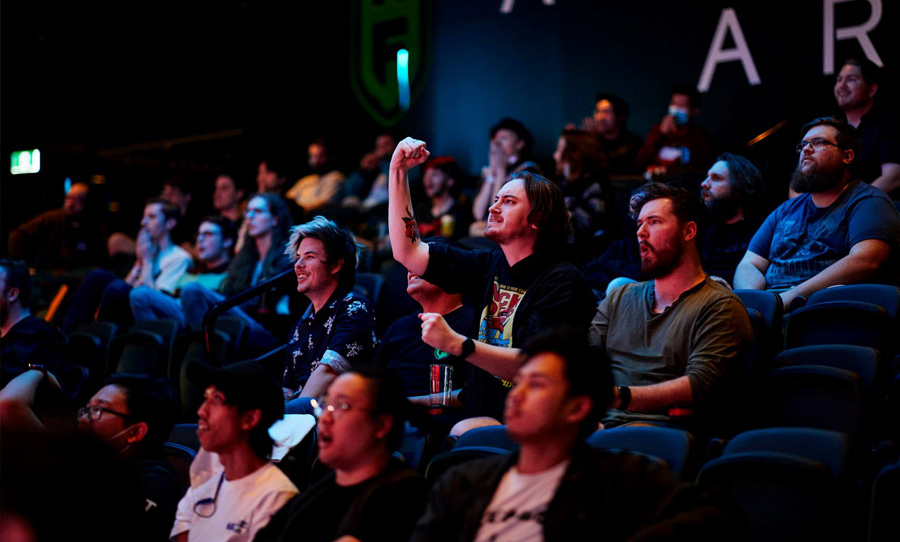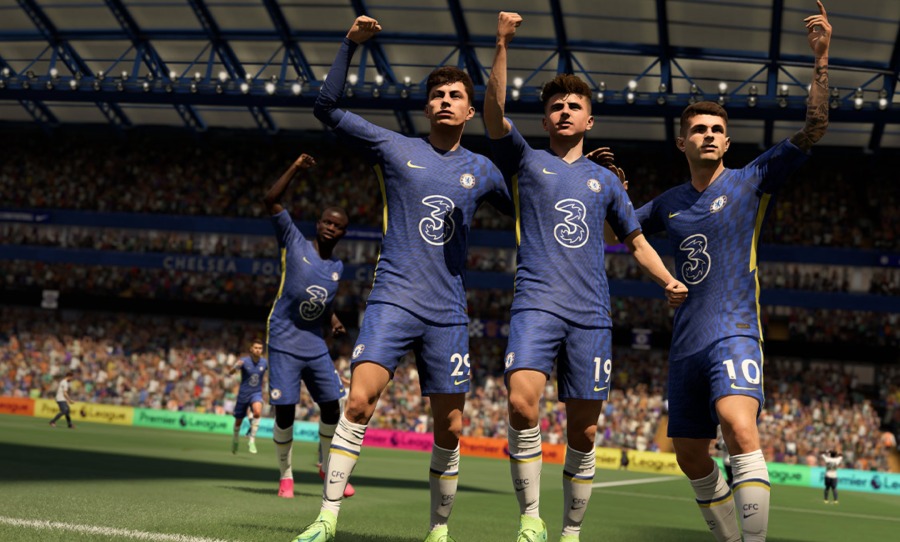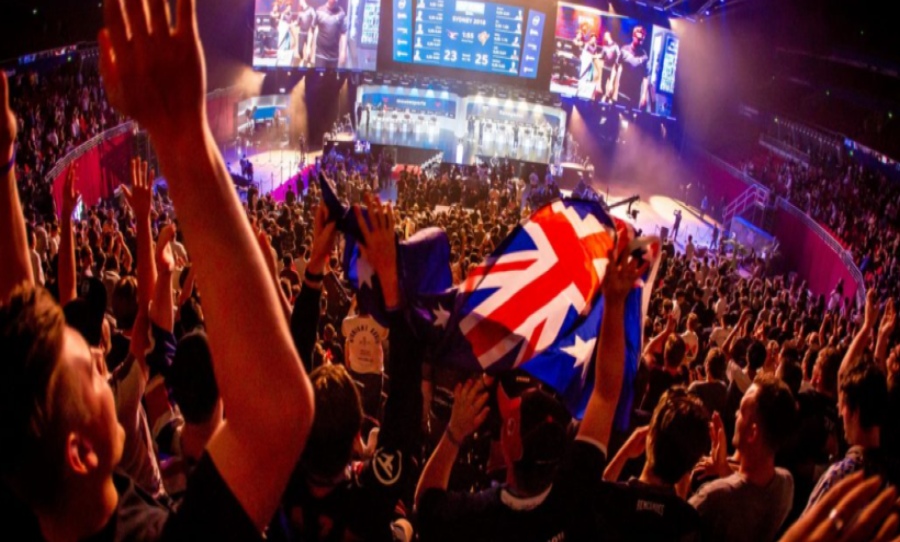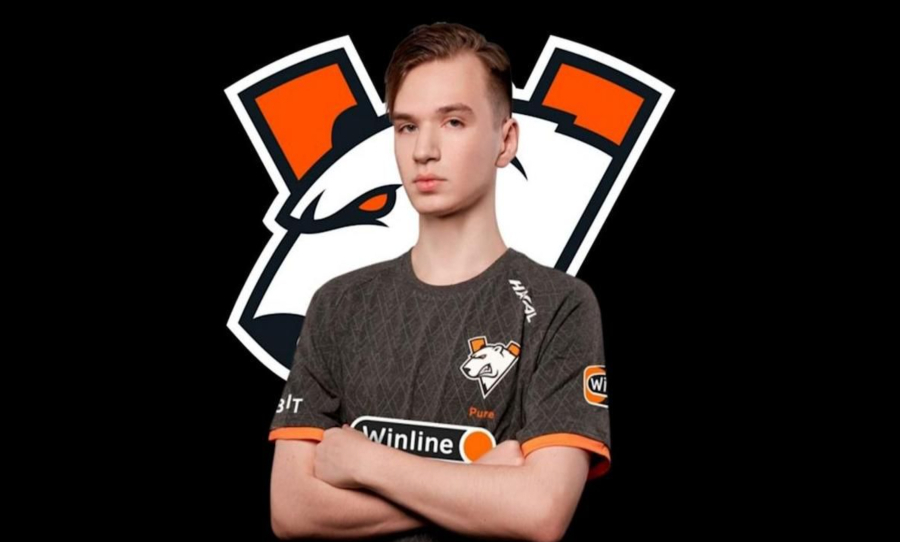While the Australian esports scene is still in its infancy, several pioneers are making waves in their segment of a global billion-dollar industry.
The world of esports is both intensely familiar and completely alien; there are giant, roaring crowds in sold-out football stadiums, suited commentators and pundits (known as casters in esports) around a glass table, sponsorships from the likes of Mercedes-Benz and Mastercard. And yet, the spectacle is not seen on a pitch, but on a screen. The players themselves can be seen on stage, but the focus is towards the avatars they control.
Whether playing as one of the 150+ champions in League of Legends or as an attacker in Counter-Strike: Global Offensive (CS:GO), Australian esports athletes are making their mark on global competition. Anathan “ana” Pham has won The International for Dota 2 (the game’s equivalent of the World Cup) twice, earning millions of dollars in prize money, while Justin “jks” Savage is regarded as one of the best CS:GO players in the world.
Common in South Korea and China, this sort of scene is yet to be considered standard in Australia. Beyond low quality internet and slow cultural absorption, esports is yet to establish a foothold in a country geographically isolated from the rest of the world and with a focus on traditional sports. Despite these challenges, several local trailblazers are looking to make a mark on an industry worth more than a billion dollars with a global audience of around 500 million.
This article appears in print in Happy Mag Issue 15. Grab your copy here.
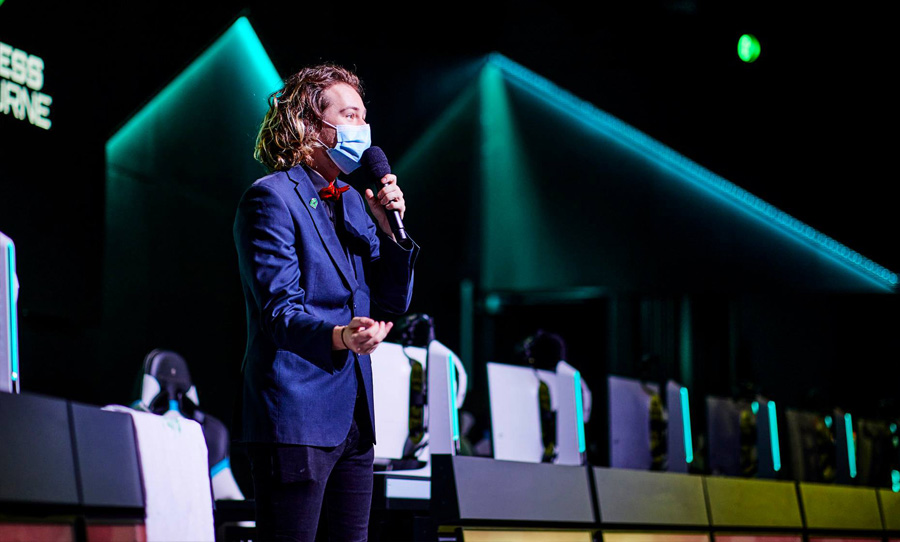
As with any new competitive field that comes up, organisations and teams are birthed alongside the industry, forced to roll with the growing pains. For the Australian esports scene, its biggest ever challenge is happening right now. Riot Games – the company behind League of Legends – has shuttered its Oceanic esports operations, closing its Sydney office and dissolving the Oceanic Pro League (OPL).
Suddenly, whole teams were left without jobs and while Riot did provide a reprieve in opening access for Oceanic players to play in the North American League of Legends Championship Series (LCS), the news has come as a huge blow to the industry.
Most of Australia’s esports clubs were founded as League of Legends teams, so to see their historical foundation disappear overnight has been shocking to say the least. Despite this road bump, there remains hope that organised play will return in some form; Riot will still be holding Oceanic qualifying tournaments for the 2021 Mid-Season Invitational and World Championship.
The Head of Operations at ORDER, one of Australia’s most storied esports organisations, Naithan Briffa expressed hope for the Australian grassroots movement and how the release of Riot Games’ first-person shooter VALORANT will provide a fresh opportunity.
“If there weren’t a professional league spun up in the wake of the OPL it would be hard to develop talent, but definitely not impossible. The grassroots esports environment continues to thrive in Oceania, and given the great success of Oceanic imports to the LCS and LEC [League of Legends European Championship] competitions I am confident that global talent scouts would continue to keep their eye on the scene.”
Besides the Rise of Valour tournament sponsored by Riot, ORDER hosted their own VALORANT tournament in the form of the ORDER Oceanic Open. It appears that the organisation is determined to ensure that VALORANT does not go the way of League of Legends.
Briffa stated that ORDER hosting its own tournament was a signal that the region has to follow the lead of the rest of the world in proactively forming a pro infrastructure.
“The cutting edge leagues around the globe have terrific governance… and while we may be unable to clone those operational structures we can certainly benefit from adopting the mindset.”
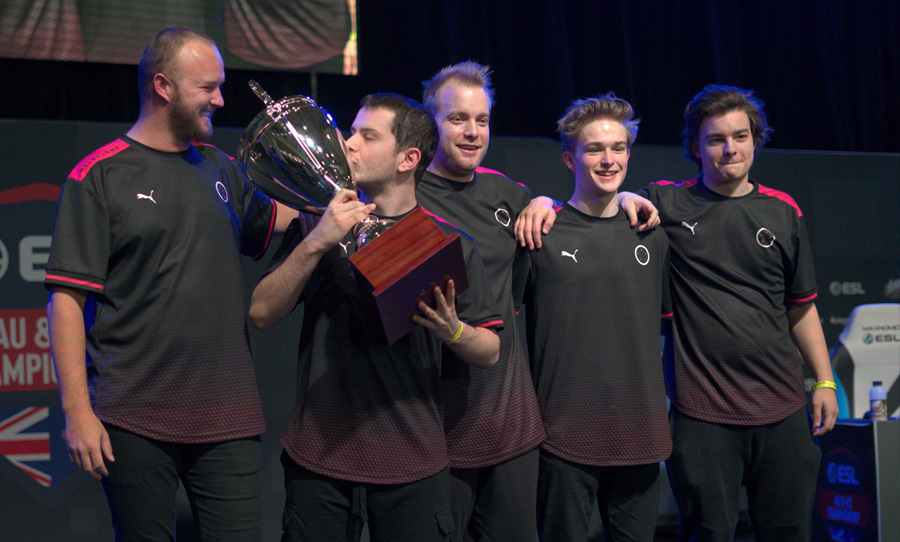
Though most traditional athletes stayed at home during the pandemic, esports had the advantage of being able to be conducted online. Despite this, there were various challenges that came from this period, namely the inability to gain wisdom from flying to and playing in international tournaments.
Nonetheless, the ease of this adaptation demonstrated the low barrier of entry that esports has and the flexibility inherent to the scene, which has made Briffa hopeful of future prospects.
“The pandemic has allowed audiences a chance to spend a bit more time watching the terrific domestic esports that we are able to produce, and I think will have positive benefits in terms of mainstream and commercial adoption.”
As with traditional sports, Australian esports fans have developed a reputation among the international community for their fervour and humour. This was perhaps best demonstrated at IEM Sydney, where fans stacked pizza boxes and religiously chanted “Nutri-Grain”. The notoriety of Australian fans has not gone unnoticed by Briffa in describing what Australia brings to global esports.
“2019 and 2020 have been as good an example as one could ask for in terms of watching the elite Oceanic players and staff head off internationally as our region gains the genuine interest of some of the biggest organisations and operations globally, and the Australian fanbase that follows them is a massive key in achieving a true global status with the most invested fans.”
The Alienware-sponsored ORDER was founded in 2017 by Jake “Spawn” Tiberi, a League of Legends caster who commentated the Chinese league and various international tournaments. For the past few years, Spawn served as the team’s general manager and coach as it expanded from League of Legends into various other games including CS:GO and Street Fighter V, all while continuing to cast. But following the dissolution of the OPL, Spawn resigned from his positions to pursue an international opportunity as the head coach of Team Liquid Academy in Los Angeles.
Spawn is just one of several Oceanic talents that have left the region for greener pastures. Despite the fears of a brain drain occurring, Briffa is optimistic that Spawn will prove to be an excellent and hard-working representative of Oceanic League of Legends and by extent, Australian esports as a whole.
“I think his legacy will be felt in his extraordinarily deep understanding of the Oceanic League of Legends scene, and his burning desire to see the premium talent we have available get to prove themselves on the international stage. Spawn is as genuine an expert on League of Legends as you could hope to find of anyone in any industry, and I know that he will always continue the fight to have Oceania represented at the highest levels of competition.”
Despite the various challenges that come with running an esports team in Australia, it appears that the region is progressing towards becoming a major contributor to the global industry. The scene seems to be channelling underdog qualities common throughout Australian competition, those of determination and perseverance through whatever challenges. It permeates every level of Australian esports, even the venues.
When looking across the world and how it facilitates live esports events, it has chosen to build entirely new infrastructures. Places like Nexon Arena in Seoul, the 7,000-seater Zhongxian E-Sports Stadium in Chongqing, China, and the 100,000 square feet Esports Stadium Arlington in the United States highlight the growth of the esports industry into something completely different from traditional sports.
Like virtually every single business in 2020, Fortress Melbourne was faced with the challenge of COVID-19 and lockdown. The venue shut its doors six days after its grand opening in March to “protect the health of our team and patrons”.
Fortress Melbourne CEO and co-founder Jon Satterley described his 200-seat venue as “the home of gaming” and how it’s in a “category of its own”, being Australia’s largest esports venue capable of live production.
“No video, no presentation, no photos can do real justice to the actual venue. When people enter… their jaws literally drop and they cannot believe something like Fortress actually exists. The elevation of all manner of gaming happens as a direct result of being inside Fortress which is kind of like the Disneyland for Australian gamers.”
Located in the centre of Melbourne’s CBD, the 2,700 square metre gaming hub includes two licensed bars, a restaurant, and 160 Alienware gaming PCs open to the public. There’s even facilities for streaming, plus tables where you can sit down and play board games. But much like its overseas counterparts, Fortress Melbourne is not simply an esports venue.
“Interestingly, Fortress Melbourne is emphatically not described or promoted as an esports venue. Rather, we see our mission… to ignite the spirit of gaming. It is our belief that if we create social hubs that allow that spirit to take hold… we are fostering the conditions for all manner of gaming cultures to grow and develop.”
During lockdown, esports viewership numbers dramatically increased and new opportunities presented themselves. The most notable esports event during lockdown was the release of Riot Games’ first-person shooter and CS:GO competitor VALORANT. An esports infrastructure was set up for the game upon release, including Riot-sponsored tournaments which Fortress hosted online.
“Fortress’s big story during the COVID lockdown was our Rise of Valour VALORANT tournament(s) and we have high hopes that this game, and Fortress’s stamp on it, will become a major part of future competitive gaming events. We’d love MEO [Melbourne Esports Open], for instance, to hold a slot for a pro VALORANT contest that Fortress could also help promote/manage.”
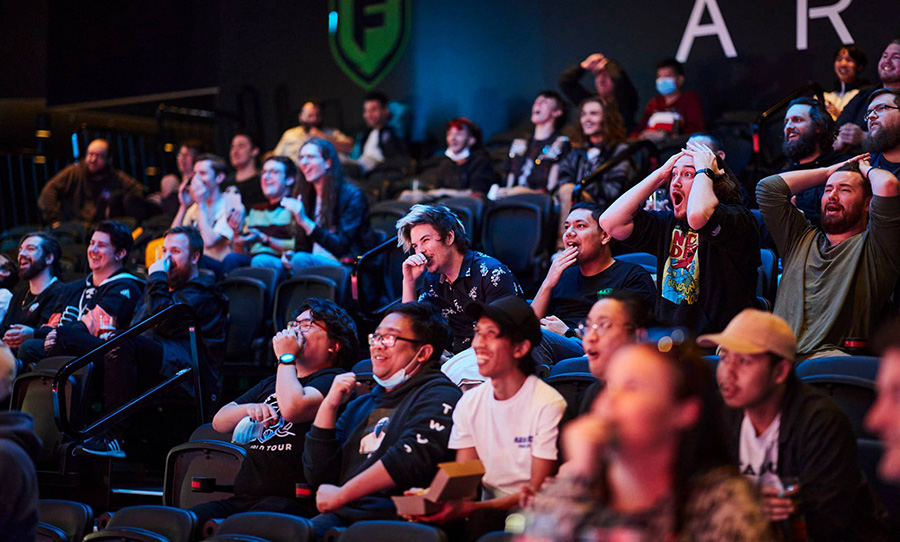
As it often happens, Melbourne remains the testing ground for innovative ideas before they are exported elsewhere in Australia. Having somewhat proved itself, Satterley did reveal that Fortress is looking to expand, stating:
“Specifically, Fortress is searching for the next flagship venues across Australia to continue this mission. We hope to have at least two more major Fortresses open by the end of 2021, with an eye on Sydney in particular. In addition we are developing many more online events, in tandem with publishers, that will grow the scene and build bigger gaming communities, online and in real life as they meet and socialise in our centres.”
“I guess for us the decision to build the first Fortress in Melbourne was mainly because that is where we (as the founders) are all from, so it was an easy choice to do the first one in your own backyard. I also think that Melbourne is often the place where the pioneering stuff happens – the weird, creative, risky ventures – and once they mature, the head offices inevitably end up in Sydney!”
It appears that both Sydney and Melbourne will add esports to their long list of competitive phenomena, including coffee (Melbourne), fashion (Melbourne), and weather (Sydney). For now Melbourne is winning, with the next IEM tournament to be hosted in the Victorian capital which also hosts the Melbourne Esports Open. And with all this, Fortress is setting itself up to be in the centre of the esports revolution.
The Australian esports industry is at its most prosperous and most destitute moment in its short history. On one hand, the closure of the OPL has placed a major foundation of the field in considerable jeopardy. But COVID-19 proved to be a blessing in disguise by boosting viewership numbers and mainstream awareness. With the release of VALORANT providing a new opportunity, the continued exporting of Aussie talent to major leagues overseas, and the development of physical infrastructure, there is a pathway towards Australia becoming a major player in the global esports ecosystem.
To be in that position, Australia must contribute something regionally unique and it is clear what that is; the tenacity and persistence that has been exported from traditional sporting culture. Heroes who punched above their weight at the highest level like Tim Cahill and Steven Bradbury are part of Australian sporting folklore and it seems that, eventually, esports practitioners will be added to this tapestry.
This article appears in print in Happy Mag Issue 15. Grab your copy here.
